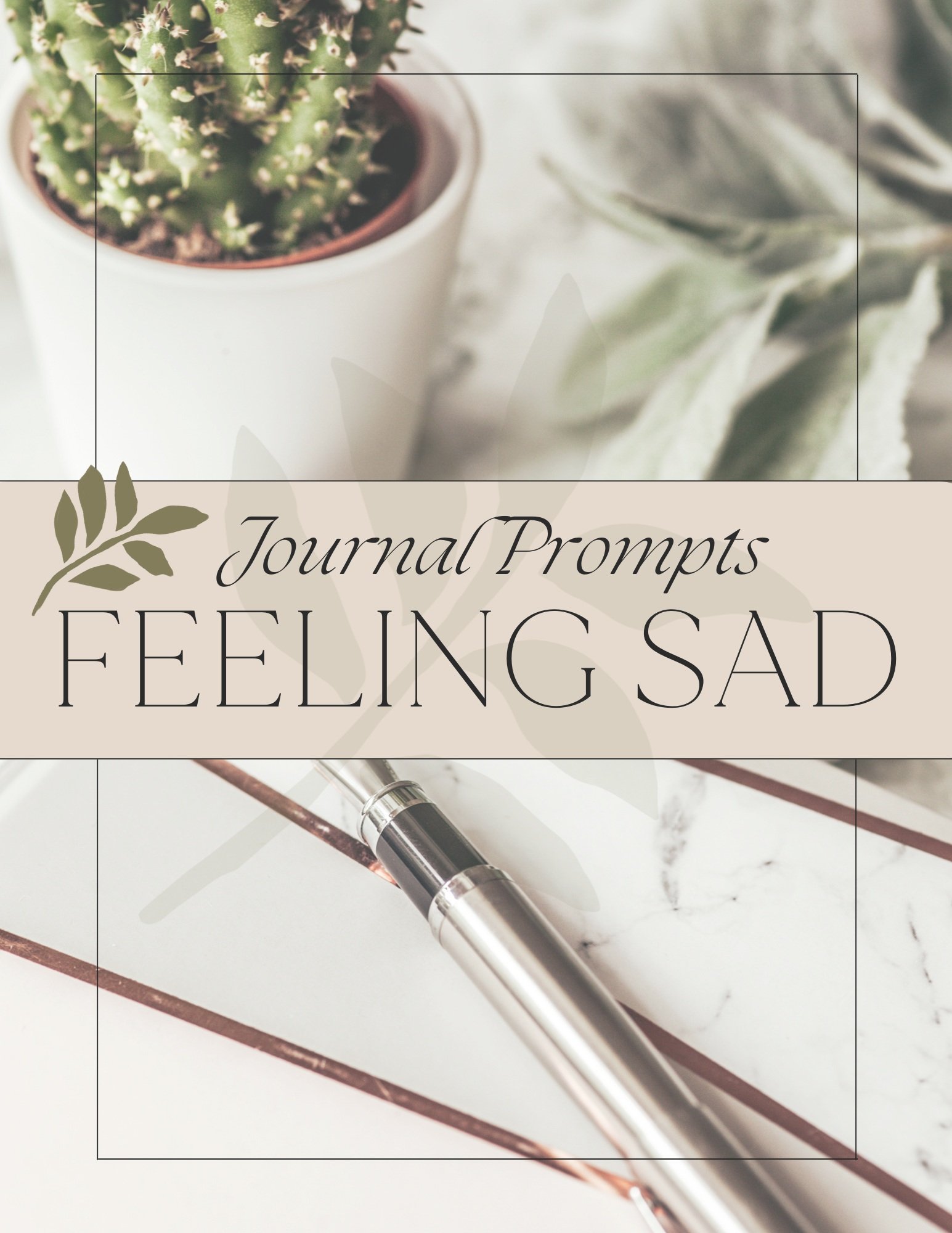These 7 Habits Might Be Wrecking Your Mental Health (And What To Do About It!)
Have you ever found yourself wondering what in your day makes you so stressed out? Your tiredness, anxiety, and overall poor well-being may not be due to one large factor, but instead tiny habits that can add up. Each of these different bad habits can accumulate into poor mental health if we don’t consciously change them. The first way to build habits that serve you is to point out what these bad habits are and identify if you are unknowingly doing them yourself.
Mental Health Affects Physical Health
Perhaps you’ve become so accustomed to the anxiety and stress of your day that you no longer mind the feelings bad mental health habits can bring about. However, poor mental health can lead to a decline in physical health too, so it’s important to stay on top of mental health management to keep your physical health in check.
Anxiety can lead to elevated heart rates, and too much stress can lead to weakened immune systems, resulting in an overall decline in your well-being. Take charge of both your mental and physical health by eliminating these habits from your routine.
You Can’t Say No
““Agreeing to plans in order to avoid FOMO will quickly turn into regretting the decision to go out entirely. In fact, the feeling of chaos from not having a moment of peace can often be worse than the FOMO itself.””
Overcommitment is a real problem and has become a large part of our current society. We even have terms—like FOMO, or the fear of missing out—to describe that aching sense of regret that follows staying in on a Saturday night while you watch your friends party until the early morning hours. However, when we say yes to everything, we can get burnt out much quicker.
Agreeing to plans in order to avoid FOMO will quickly turn into regretting the decision to go out entirely. In fact, the feeling of chaos from not having a moment of peace can often be worse than the FOMO itself. We all need those “boring” nights in to recharge, so stop overcommitting to plans and start saying no.
Positive Habit Swap: Enjoy Nights In
If you’re a people pleaser who’s afraid to say no, remember that you won’t be any fun (or have any, for that matter) at an outing if you’re too worn out to enjoy it. Your true friends will understand when you need to set boundaries for your mental health and will want you to prioritize yourself with a night in over a night out.
Saying no right away also eliminates the chance that you might cancel at the last minute, which can often be more damaging (not to mention annoying) to friendships than simply saying no from the start.
You’re Always Trying Fad Diets
Eating healthy and following fad diets are two completely separate things. Fad diets often work in the short term, but will quickly backfire on you when your body starts to hold onto extra fat and your metabolism begins to slow down. Your body needs proper nutrition and a well-balanced diet in order to maintain a healthy lifestyle and fad diets very frequently cannot provide this.
Not to mention, the rules with diets are often so strict that even if your body could maintain it, your mental wellness will start to deteriorate from the restrictions alone.
Positive Habit Swap: Intuitive Eating
Replace this habit with intuitive eating. With intuitive eating, you don’t deprive yourself of food; rather, you listen to your body, eat when you’re hungry, and enjoy the food your body is craving.
While focusing on eating a well-balanced diet of colorful foods can provide a variety of healthy benefits, intuitive eating removes the pressure to starve yourself if you’re feeling hungry or obsessively count calories. Instead, practicing this style of eating will help you enjoy your food, instead of seeing it as the enemy.
You’re Going To Bed Too Late
Life can get hectic and you can end up missing vital hours of sleep in order to squeeze in time for work, hobbies, and everyday duties. In the short-term, this lack of sleep may not register in your mind. You may not feel the effects of missing important hours of sleep and instead, get used to dulled reactions, brain fog, and other common symptoms of not getting enough sleep. However, over time losing sleep can become detrimental to your mental and physical health.
Positive Habit Swap: Set Up a Nightly Routine
If you find it difficult to step away from work or your daily routine in order to sleep, make your sleep schedule a part of your routine. Create a nightly routine that encourages sleep—spend an hour before bed relaxing, avoiding electronics, sipping tea, and ultimately, taking steps to get your body ready for bed.
This will help sleep come easier and since it’s a part of a larger routine, you can plan your work and daily schedule accordingly, so you ensure everything you want to accomplish is done without sacrificing your sleep in the name of productivity.
You Don’t Spend Time Outside
This bad habit may be especially prevalent if you work remotely. Without heading to the office, you may not have the need to get out of your house for fresh air, let alone to explore the great outdoors. But just because you don’t have to leave your home doesn’t mean that you shouldn’t.
Nature has been shown to have a grounding, peaceful quality to it that can clear your mind and give you the energy to carry on your day. Even a few moments outside can help you restart your day and give you a boost of feel-good chemicals—and on a sunny day, a dose of Vitamin D!—to brush away any lingering sadness or anxiety.
Positive Habit Swap: Take a Hot Girl Walk
You’ve probably heard the phrase “hot girl walk” on social media. It was popularized during the start of the pandemic to get people out of their house, but it remains just as relevant. Put on a podcast, audiobook, your favorite playlist, or go technology-free and open your front door. Put on your favorite pair of workout clothes and go out for a walk with no destination in mind. This time outside will help transform your mood.
You’re Drinking Too Much Caffeine
Take a deep breath—this tip isn’t saying you have to give up your morning coffee in order to be successful. Caffeine can help our brains stay more alert and give us that extra push we need to get out of bed and get the day started. These qualities are great, but the trouble comes when we consume too much caffeine. Too much caffeine can lead to unprovoked anxiety, which ultimately can put you in a sour mood. Everyone has different limits of how much caffeine is too much, so know your limits and stick to them!
Positive Habit Swap: Find Fun Drinks
If you’re someone who drinks coffee in the afternoon because you enjoy the taste, find a non-caffeinated beverage to take its place. While water can get boring—especially when we need a change—and a coffee break in the middle of the workday might sound like it will do the trick, you’re only dehydrating yourself more and setting yourself up for a potential disaster.
Whether it’s kombucha, sparkling water, a smoothie, or something else, find a beverage that gets you excited to drink it, but won’t lead to that dreaded caffeine crash.
““We’re our own worst critics and the quickest to judge. But over time, these negative things you tell yourself will weigh on your self-esteem and send your mental health down the gutter, so get rid of them now.””
You Are Guilty of Negative Self-Talk
We’ve all berated ourselves in our mind for messing up and not performing to the best of our abilities at least once. In the moment, this negative self-talk may feel warranted, but I promise you it’s not. We’re our own worst critics and the quickest to judge. But over time, these negative things you tell yourself will weigh on your self-esteem and send your mental health down the gutter, so get rid of them now.
Positive Habit Swap: Journal
I’m not going to tell you to start screaming positive affirmations in the mirror when all you want to do is criticize yourself. It’s not realistic and you’ll probably end up feeling worse.
Instead, write out these negative thoughts you’re having. Write it all out on paper and don’t hold back. This journaling exercise helps you get every negative thought you have out of your mind and onto a physical object. Not only will you find that your mind is a lot clearer and less filled with rushing negative thoughts and emotions once this exercise is done, but it allows you to identify patterns or triggers that may be causing this emotional grief.
If you return to this journal entry later, you will also be better able to process and reflect on the feelings and emotions that you were having that day. In a more relaxed state, you are objectively able to interpret the feelings in a way that you could otherwise not do previously.
You Spend Too Much Time Sitting
Another downfall of our work-focused, fast-paced society is its inclination towards sitting and remaining sedentary, rather than standing and being active. Not only can a lack of exercise harm your physical health, it can affect your mental health, as well. Feel-good chemicals, such as dopamine, are released during movement, which make you feel less stressed and increase happiness. Also, when your body feels loose and free from movement, your mind opens up all the same.
Positive Habit Swap: Walking or Standing While Working
If you have a sedentary lifestyle, odds are it relates to your job. If you frequently spend hours sitting, the sedentary cycle can quickly creep up on you.
After a long eight-hour day at your desk, you may not have time for or feel like working out if you are overburdened with all of the other responsibilities you have to deal with outside of work.
Instead, incorporate movement into your work hours by using a standing desk or sleek under the desk treadmill. You can even find standing desk convertors that sit on top of your current desk, so you don’t have to replace the entire system. It’s an investment that will quickly pay off!
Replace Your Bad Habits
We all have habits that we hate and know that we need to change. But taking the first step is identifying the habits that you do often and that put you in a bad mood.
As you work to replace these negative habits with positive ones, you’ll find that your mental health quickly follows suit.












